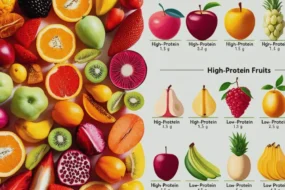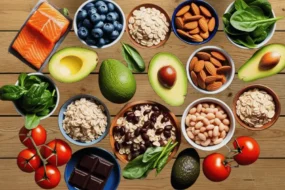
The debate over bay leaves in cooking has been ongoing for years. Some chefs believe they add a subtle but essential flavour to dishes, while others question their impact. Even celebrity chef Ina Garten has expressed doubt, saying in a 2022 interview with The New Yorker, “I always wonder whether bay leaf makes a difference. I use bay leaves in a couple of things, and I’ve always wanted to make them without to see if it made a difference—but I never have, so I’m not sure.”
So, what’s the truth? Do bay leaves do anything in cooking, and more importantly, can you eat them? Here’s what health experts say.
Can You Eat Bay Leaves?
The short answer: No, you should not eat whole bay leaves, whether raw or cooked.
Why Are Whole Bay Leaves Unsafe to Eat?
Hard and Sharp: Bay leaves have a tough, leathery texture and can be sharp at the edges, making them difficult to chew.
Not Digestible: According to WebMD, bay leaves do not break down in the digestive system.
Health Risk: If swallowed whole, they can cause choking, block the digestive tract, or tear the intestinal lining.
While cooking with bay leaves is common, they should be removed before consuming the dish. According to dietitian Jamie Nadeau, RD, bay leaves are safe for cooking. Still, they should be removed permanently before eating, as their tough texture can pose a risk.
What to Do If You Accidentally Swallow a Bay Leaf?
If you accidentally eat a small piece of a bay leaf, there’s usually no need to panic. However, larger pieces or whole bay leaves can pose risks.
Possible Risks of Swallowing a Bay Leaf:
Choking hazard – A whole bay leaf can get stuck in the throat.
Digestive discomfort: Since they are not digestible, they may irritate.
Intestinal damage: Sharp edges could scrape or puncture the digestive tract.
If you accidentally swallow a whole bay leaf and experience pain, difficulty swallowing, or digestive issues, seek medical attention.
Do Bay Leaves Have Any Health Benefits?
Some traditional medicine practices claim bay leaves have health benefits, but scientific research is limited.
What Science Says About Bay Leaves and Health:
- A 2016 study found that rabbits consuming dried bay leaves had lower triglyceride levels.
- However, these results have not been confirmed in human studies.
- Researchers also don’t know how much bay leaf would be needed for potential health effects.
While bay leaves contain antioxidants and other compounds, there’s no solid evidence that eating them (even ground bay leaves) has significant human health benefits.
How to Safely Use Bay Leaves in Cooking
Bay leaves are popular in soups, stews, and sauces because of their aromatic qualities. If you enjoy cooking with them, follow these tips:
- Use whole bay leaves in slow-cooked dishes for a rich, earthy aroma.
- Permanently remove them before serving to prevent accidental swallowing.
- Consider using ground bay leaves in small amounts if you want the flavour without the risk.
Conclusion
While bay leaves can enhance flavour in cooking, they should never be eaten whole. There’s no strong evidence that they offer significant health benefits, but they remain a beloved ingredient in many kitchens. If you use them, always remember to remove them before eating!
Sources:
USA TODAY interview with dietitian Jamie Nadeau, RD
WebMD on bay leaves and digestion
2016 study on bay leaves and triglycerides in rabbits
I’m Ayesha Zahid, a certified Nutritionist and Dietitian with over 3 years of hands-on experience helping individuals and families improve their health through nutrition.



